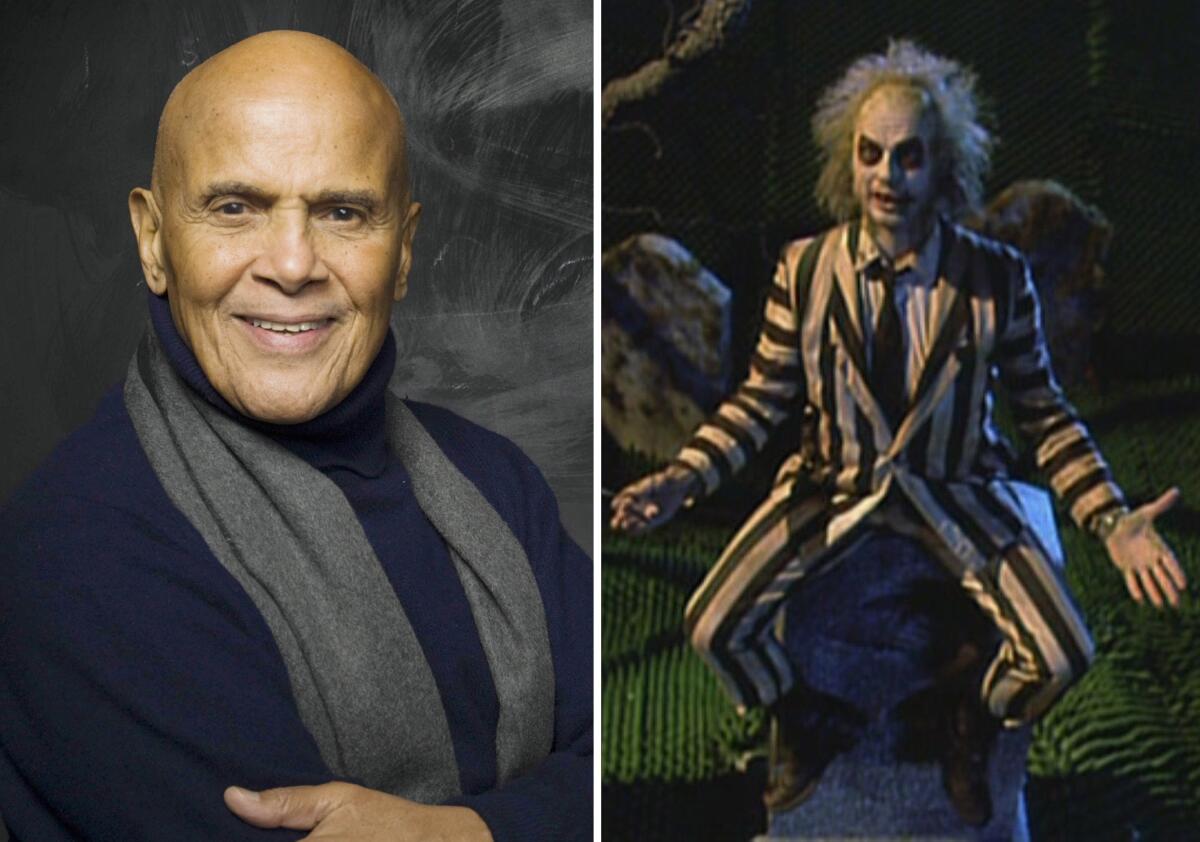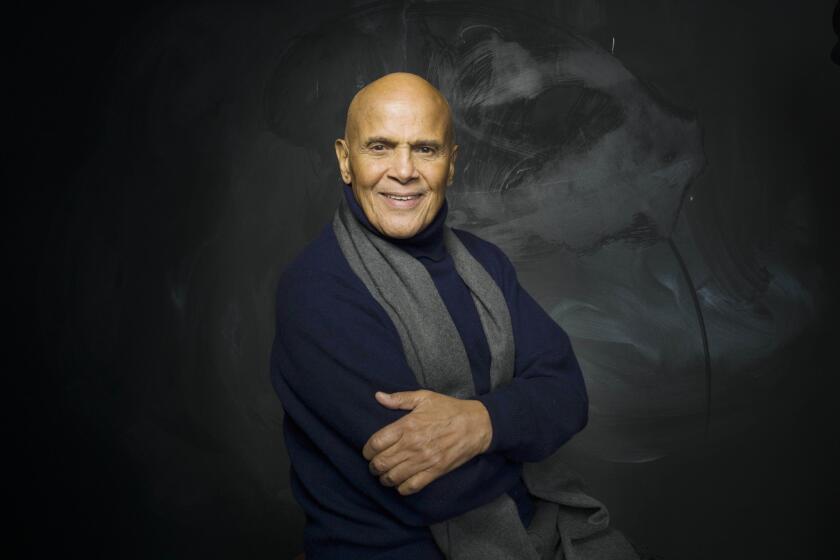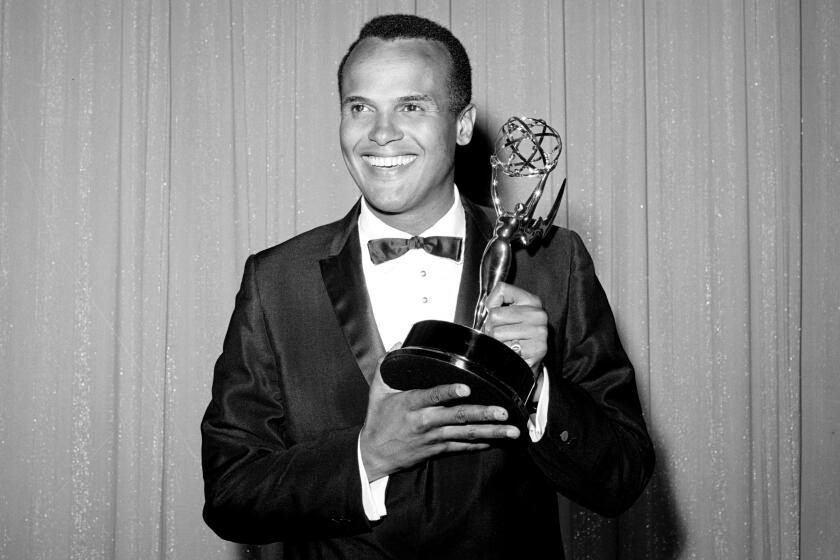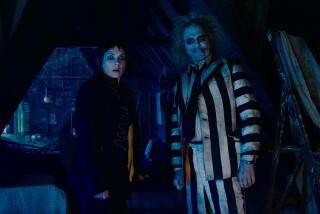Harry Belafonte’s music made 1988’s ‘Beetlejuice.’ Here’s how it happened

- Share via
You can’t have “Beetlejuice” without Harry Belafonte.
The music from the entertainer, who died Tuesday at 96, is forever intertwined with Tim Burton’s 1988 comedy about a couple of ghosts (Alec Baldwin and Geena Davis) who hire a deranged bio-exorcist (Michael Keaton) to rid their home of its new tenants (Catherine O’Hara and Jeffrey Jones).
‘The question is: Where is the raised voice of Black America? Why are we mute?’ Harry Belafonte asked artists in 2013 while receiving an Image Award.
Belafonte popularized the Jamaican folk song “Day-O (The Banana Boat Song)” by recording it for his hit 1956 album “Calypso,” which helped bring the music genre to the masses. Then the song, and several of his others, achieved an afterlife in Burton’s runaway hit movie.
The oddball feature utilized the King of Calypso’s infectious mid-century tunes — “Jump in the Line (Shake Señora),” “Man Smart, Woman Smarter” and “Sweetheart from Venezuela” — to comedic perfection that juxtaposed the film’s stuffy newcomers with the quaint old guard who appeared to be Belafonte fans.
Using the songs in the movie was a strange ask for the Jamaican American star, but one Belafonte didn’t mind, particularly because the request came directly from music and movie magnate David Geffen. Geffen reportedly called Belafonte and told him that he wanted to use the singer’s original recordings of the songs for the film.
“I never had a request like that before,” the musician and civil rights activist told Pitchfork in 2018. “We talked briefly. I liked the idea of Beetlejuice. I liked him. And I agreed to do it.”
‘The question is: Where is the raised voice of Black America? Why are we mute?’ Harry Belafonte asked artists in 2013 while receiving an Image Award.
The Emmy and Tony Award winner was intrigued and flattered, Pitchfork reported. A deal was made and the rest, as they say, is Hollywood history: one that showcased Belafonte’s smooth baritone for “Day-O” memorably emerging from the mouth of O’Hara’s Delia during a kooky dinner party set piece.
The suggestion to use the song came from O’Hara herself, according to co-star Jones, because she wanted to bring more energy to the scene, which had originally planned to use an old-school R&B song. Belafonte’s recordings were reportedly cheaper to license too, although Belafonte declined to comment on the licensing matters, telling Pitchfork, “If I get into my personal finances, you’re gonna want to kidnap me!”
Questlove, Spike Lee, Ava DuVernay, Ice Cube and Oprah Winfrey are among the celebrities who have posted about Harry Belafonte’s death.
Elsewhere in the film, Delia’s goth daughter Lydia (Winona Ryder) jubilantly levitates to Belafonte’s “Jump in the Line,” further giving the offbeat horror spoof the playful lightness and specter of mischief that made it a cult classic.
“It’s a ghost story taking place in a New England-style house,” screenwriter Larry Wilson, who wrote the original story with late novelist Michael McDowell, told Pitchfork. “Then here comes Harry Belafonte! Why? Why not? That’s the secret of ‘Beetlejuice.’ No one was afraid to take things to the most most far-out places.”
More to Read
The biggest entertainment stories
Get our big stories about Hollywood, film, television, music, arts, culture and more right in your inbox as soon as they publish.
You may occasionally receive promotional content from the Los Angeles Times.











